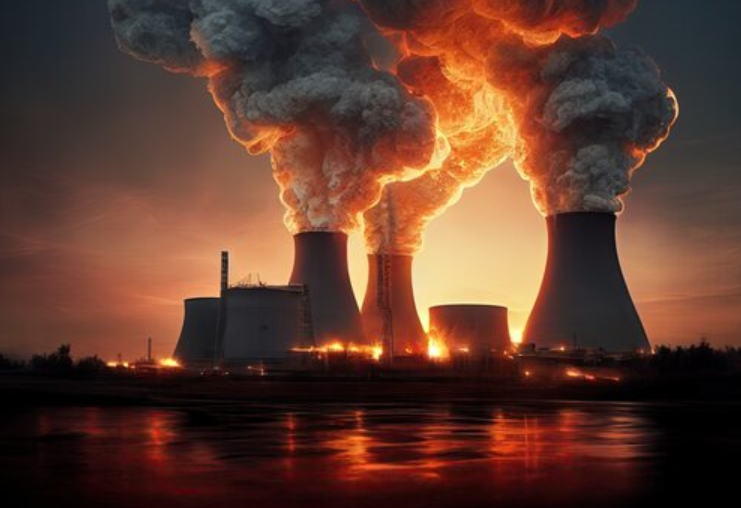In recent years, the topic of nuclear accidents has garnered significant attention due to their potentially catastrophic consequences. Nuclear accidents in Asia: Long-Term Health Effects and Precautions highlights the pressing concerns and health implications associated with such incidents. This article delves into the aftermath of nuclear accidents, exploring their long-term health effects and the necessary precautions to mitigate these risks.
Nuclear Accidents in Asia: Long-Term Health Effects and Precautions
Nuclear accidents have far-reaching consequences that extend beyond immediate physical damage. The long-term health effects are particularly concerning, impacting not only those directly exposed but also future generations. This section examines some of the most notable nuclear accidents in Asia and their lasting impact on health.
Long-Term Health Effects of Nuclear Accidents in Asia
The long-term health effects of nuclear accidents are a major public health concern. Radioactive exposure can lead to a range of serious health issues, some of which may not manifest until years after the initial exposure.
Cancer and Radiation Sickness
One of the most severe health effects of nuclear accidents is an increased risk of cancer. Exposure to high levels of radiation can damage DNA, leading to mutations that cause various types of cancer, including thyroid, lung, and breast cancer. Additionally, radiation sickness, characterized by nausea, fatigue, and hair loss, can occur shortly after exposure and can be fatal in severe cases.
Genetic and Reproductive Effects
Radiation exposure can also have genetic effects, potentially causing birth defects and developmental issues in children born to parents who were exposed to radiation. These genetic mutations can be passed down to subsequent generations, amplifying the long-term impact of a nuclear accident.
Cardiovascular and Other Health Issues
Studies have shown that exposure to radiation can increase the risk of cardiovascular diseases, such as heart disease and stroke. Moreover, radiation can impair the immune system, making individuals more susceptible to infections and other health complications.
Notable Nuclear Accidents in Asia
Asia has experienced several significant nuclear accidents, each with its own set of health and environmental repercussions. Here, we discuss a few of these incidents and their long-term effects.
The Fukushima Daiichi Disaster
The Fukushima Daiichi disaster in Japan, triggered by a massive earthquake and tsunami in 2011, is one of the most well-known nuclear accidents. The release of radioactive materials resulted in widespread contamination. Long-term health studies have indicated an increase in thyroid cancer among children and adolescents exposed to radiation.
The Chernobyl Incident’s Impact on Asia
While the Chernobyl disaster occurred in Ukraine, its radioactive fallout affected parts of Asia. Countries like Turkey and China reported increased radiation levels, leading to concerns about long-term health effects such as cancer and other radiation-induced conditions in the affected populations.
Kyshtym Disaster’s Lingering Effects
The Kyshtym disaster in 1957, occurring at the Mayak Production Association in Russia, also had significant repercussions for nearby Asian regions. The release of radioactive isotopes led to chronic health issues among the exposed populations, including cancers and birth defects.
Precautions and Mitigation Strategies
Preventing and mitigating the health effects of nuclear accidents require comprehensive strategies that encompass immediate response and long-term planning. This section outlines some of the key precautions and mitigation measures.
Immediate Response and Evacuation
In the event of a nuclear accident, swift evacuation and immediate response are crucial to minimize radiation exposure. Authorities must establish clear protocols for evacuating affected areas and providing medical assistance to those exposed to radiation.
Long-Term Health Monitoring
Long-term health monitoring of populations exposed to radiation is essential. Regular medical check-ups, cancer screenings, and genetic counseling can help detect and address health issues early. Establishing health registries can aid in tracking the long-term effects and providing necessary care.
Public Education and Awareness
Educating the public about the risks associated with nuclear accidents and the importance of early detection and treatment is vital. Awareness campaigns can inform communities about protective measures and the significance of adhering to safety guidelines.
Strengthening Nuclear Safety Regulations
Enhancing nuclear safety regulations and ensuring strict compliance is critical to preventing future accidents. Regular safety drills, maintenance of nuclear facilities, and investment in advanced safety technologies can significantly reduce the risk of accidents.
Conclusion
In conclusion, Nuclear Accidents in Asia: Long-Term Health Effects and Precautions emphasizes the grave health implications of nuclear accidents and the importance of taking comprehensive precautions. The long-term effects, ranging from cancer to genetic mutations, underscore the need for ongoing health monitoring and public education. By strengthening safety regulations and ensuring swift response measures, we can mitigate the risks and protect public health.
FAQ
Q: What are the most common health effects of radiation exposure from nuclear accidents?
A: The most common health effects include an increased risk of cancer, radiation sickness, genetic mutations, and cardiovascular diseases. These effects can manifest immediately or years after exposure.
Q: How can individuals protect themselves in the event of a nuclear accident?
A: In the event of a nuclear accident, individuals should follow evacuation orders, stay indoors to minimize exposure, and use protective gear if available. It’s also important to stay informed through official channels.
Q: What long-term measures can governments take to address the health impacts of nuclear accidents?
A: Governments can implement long-term health monitoring programs, enhance public education on radiation risks, and strengthen nuclear safety regulations. Regular medical screenings and maintaining health registries are also crucial.
Q: Are there any treatments for radiation exposure?
A: Treatments for radiation exposure include decontamination, administration of potassium iodide to protect the thyroid, and medical care for symptoms of radiation sickness. Long-term health monitoring and treatment are essential for managing radiation-induced conditions.
Q: How do nuclear accidents affect future generations?
A: Radiation exposure can cause genetic mutations that may lead to birth defects and developmental issues in future generations. These effects highlight the importance of addressing radiation risks comprehensively.
By understanding the long-term health effects and implementing effective precautions, we can better protect ourselves and future generations from the devastating impacts of nuclear accidents.
